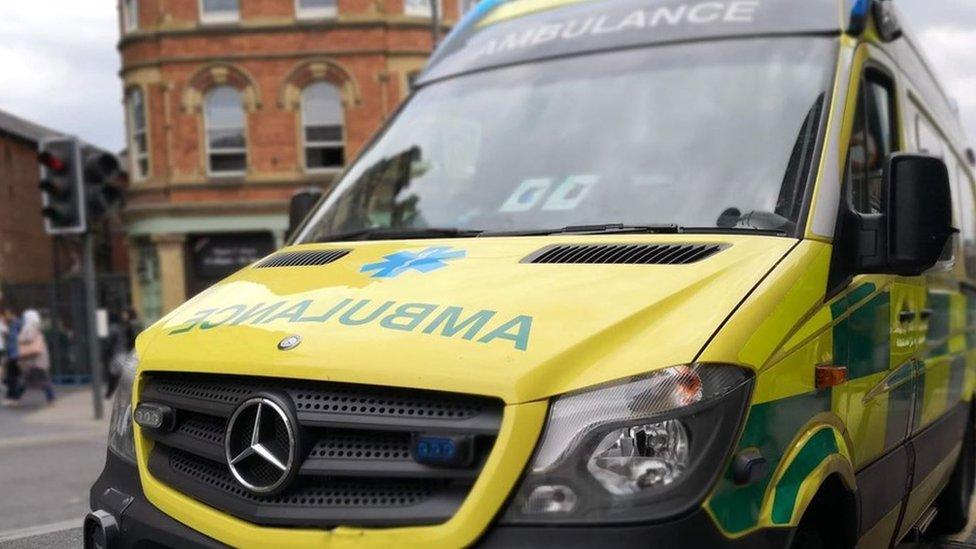Meadowhall death leads coroner to raise resuscitation policy concerns
- Published

Yorkshire Ambulance Service apologised for "shortcomings" following Mark Bennett's death
A coroner has raised concerns over the amount of time paramedics spend on resuscitation after the death of a man at a South Yorkshire shopping centre.
Mark Bennett, 38, from Grimsby, died at Meadowhall in Sheffield after suffering a cardiac arrest on 14 April 2022.
Coroner Steve Eccleston said he was concerned that ambulance staff tried resuscitation for "only 21 minutes" and did not take Mr Bennett to hospital.
Yorkshire Ambulance Service apologised and said it would review its guidance.
An inquest at the Medico-Legal Centre in Sheffield heard Mr Bennett had tripped on stairs in the London Underground causing damage to the ligaments in his right ankle nine days before he collapsed.
He was treated at the Royal Free Hospital in London and the Diana Princess of Wales Hospital in Grimsby for the injury.
However he suffered a pulmonary embolism, which led to a cardiac arrest, while at Meadowhall.

Mark Bennett collapsed at Meadowhall shopping centre in Sheffield
The court heard that the time paramedics spent trying to resuscitate Mr Bennett was "just within their then-applicable protocol," according to a prevention of future deaths report.
The report said ambulance staff did not take him to the nearby accident and emergency department at the Northern General Hospital Sheffield, and no further attempts at resuscitation took place.
The coroner said this meant no hospital staff were able to try to break down the blood clots through procedures known as thrombolysis.
'Lack of guidance'
An ambulance service worker told the inquest that guidance on when to stop resuscitation and take patients to hospital in these circumstances was "unclear".
Mr Eccleston said there was a "lack of guidance and/or protocols on what constitutes best practice on this issue" and that it could put future patients at risk.
In the report, addressed to Yorkshire Ambulance Service (YAS) and the Association of Ambulance Chief Executives, he said they should look at "how long should resuscitation continue for and when should a patient be taken to hospital for thrombolysis".
A spokesperson for YAS said the organisation was "very sorry for the shortcomings identified".
They said paramedics follow guidelines set by the Joint Royal Colleges Ambulance Liaison Committee (JRCALC).
"Paramedics are supported to make decisions about the termination of resuscitation attempts and JRCALC provides clear guidance on the scope in which they may make these difficult decisions," they said.
"Sadly, in this instance, but clearly with the best of intentions, a decision was made which falls outside of this scope."
The trust said it would review and update its clinical advice and extra training on the decision of when to end resuscitation attempts would be carried out.

Follow BBC Yorkshire on Facebook, external, X (formerly Twitter), external and Instagram, external. Send your story ideas to yorkslincs.news@bbc.co.uk, external.